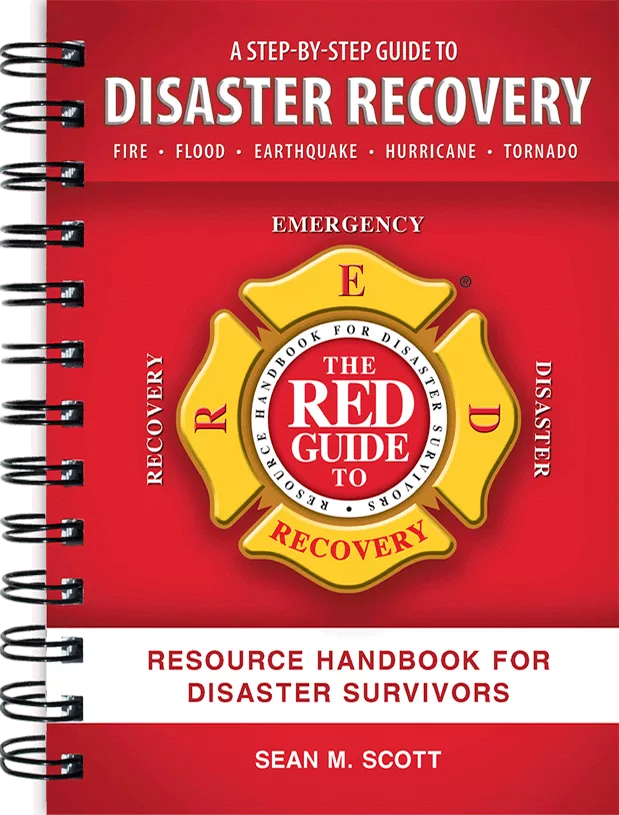When storms strike home, preparedness really pays off
EVERETT, Wash. – Feb. 4, 2009 (The Herald) -- Snow and heavy rains arrived early and stayed long in December, catching many off guard.
But when it comes to water damage to homes in the region, it might not be over yet.
Whether this is a calm before the next storm or the end of the flooding road, being prepared for what lies ahead is essential.
Darrin Sanger, communications director at the Northwest Insurance Council, says that recent flooding was unusual.
"There's no question," Sanger said. "It came early and it came hard."
It also came with a great price tag with almost 19 million claims statewide for damage to homes, autos and small businesses. And that doesn't include flood claims.
"It's important to know that the flood damage is excluded from homeowners' policies," Sanger said. "Homeowners in flood risk areas can get (coverage) under National Flood Insurance."
There is still a perception among some homeowners that their home insurance will cover everything.
"That's definitely not the case," Sanger said. "Policies specifically outline what's covered and not."
Frozen pipes and roofs collapsed under the weight of snow and ice are the kinds of things covered by most homeowners' insurance, Sanger said. But he noted that people should sit down once a year with their insurance agent to ensure they have a firm understanding of what coverage is provided.
If homeowners need to apply for flood insurance, their insurance agent will guide them, Sanger said. The National Flood Insurance program is managed by the Federal Emergency Management Agency, or FEMA.
What do you do when your basement is flooded?
Rob Wills, president of Red E Kleen in Everett, has the experience and tools to help.
Wills and his teams answer hundreds of calls around Snohomish County each month. Currently, they're especially busy east of Monroe. Wills has been working on river and snow runoff into basements as well as homes flooded by broken pipes.
Wills sometimes arrives at homes with emergency trucks to extract water. He assesses carpets and carpet pads, flooring and what might need to be removed.
"Everything that has come in contact with sewer water has to be removed," Wills said.
Most jobs take about five days to dry. A recent two-story house was completely saturated and Wills brought in drying trailers that helped clear the house in six days and prevented secondary damage.
Equipment for flood repairs includes large fans and dehumidifiers. The temperature in homes that are drying out needs to be at least 80 degrees, and sometimes can get higher than 100. A dehumidifier on the trailer brings in hot air, which needs to keep circulating.
"We have a fan every so many feet," Wills said. "It creates a whirlwind in the house."
Scott Davis, an insurance agent in Marysville, said homeowners affected by water damage should call their insurance agent right away to get a claim going.
They should try to protect their property as best as possible and document everything with photographs or videos. Keeping an itemized list is important and homeowners shouldn't throw anything away.
Homeowners can prepare ahead of time by taking photos of what's inside their home and storing the pictures on CDs or DVDs. Davis suggests photographing the contents of drawers and items on shelves and in hutches.
He said a complete home inventory is helpful in dealing with any disaster.
"You couldn't go home right now and list everything in your house," Davis said. "You'll wake up in middle of night and say, 'That's one more thing we need to put on the list.' "
If homes are not in a flood plain, then insurance can be inexpensive since not all flooding is covered. If homes are on a federal map of area flood plains then agents will help homeowners apply for coverage.
Federal maps may be different from those of five years ago, so it's always a good idea to look up your home even if you've checked in the past.
Some waterfront homes north of the Tulalip Tribes reservation along Port Susan, for example, could be affected by flooding even though there's no river nearby.
"That's a tidal surge flood insurance," Davis said.
But when it comes to water damage to homes in the region, it might not be over yet.
Whether this is a calm before the next storm or the end of the flooding road, being prepared for what lies ahead is essential.
Darrin Sanger, communications director at the Northwest Insurance Council, says that recent flooding was unusual.
"There's no question," Sanger said. "It came early and it came hard."
It also came with a great price tag with almost 19 million claims statewide for damage to homes, autos and small businesses. And that doesn't include flood claims.
"It's important to know that the flood damage is excluded from homeowners' policies," Sanger said. "Homeowners in flood risk areas can get (coverage) under National Flood Insurance."
There is still a perception among some homeowners that their home insurance will cover everything.
"That's definitely not the case," Sanger said. "Policies specifically outline what's covered and not."
Frozen pipes and roofs collapsed under the weight of snow and ice are the kinds of things covered by most homeowners' insurance, Sanger said. But he noted that people should sit down once a year with their insurance agent to ensure they have a firm understanding of what coverage is provided.
If homeowners need to apply for flood insurance, their insurance agent will guide them, Sanger said. The National Flood Insurance program is managed by the Federal Emergency Management Agency, or FEMA.
What do you do when your basement is flooded?
Rob Wills, president of Red E Kleen in Everett, has the experience and tools to help.
Wills and his teams answer hundreds of calls around Snohomish County each month. Currently, they're especially busy east of Monroe. Wills has been working on river and snow runoff into basements as well as homes flooded by broken pipes.
Wills sometimes arrives at homes with emergency trucks to extract water. He assesses carpets and carpet pads, flooring and what might need to be removed.
"Everything that has come in contact with sewer water has to be removed," Wills said.
Most jobs take about five days to dry. A recent two-story house was completely saturated and Wills brought in drying trailers that helped clear the house in six days and prevented secondary damage.
Equipment for flood repairs includes large fans and dehumidifiers. The temperature in homes that are drying out needs to be at least 80 degrees, and sometimes can get higher than 100. A dehumidifier on the trailer brings in hot air, which needs to keep circulating.
"We have a fan every so many feet," Wills said. "It creates a whirlwind in the house."
Scott Davis, an insurance agent in Marysville, said homeowners affected by water damage should call their insurance agent right away to get a claim going.
They should try to protect their property as best as possible and document everything with photographs or videos. Keeping an itemized list is important and homeowners shouldn't throw anything away.
Homeowners can prepare ahead of time by taking photos of what's inside their home and storing the pictures on CDs or DVDs. Davis suggests photographing the contents of drawers and items on shelves and in hutches.
He said a complete home inventory is helpful in dealing with any disaster.
"You couldn't go home right now and list everything in your house," Davis said. "You'll wake up in middle of night and say, 'That's one more thing we need to put on the list.' "
If homes are not in a flood plain, then insurance can be inexpensive since not all flooding is covered. If homes are on a federal map of area flood plains then agents will help homeowners apply for coverage.
Federal maps may be different from those of five years ago, so it's always a good idea to look up your home even if you've checked in the past.
Some waterfront homes north of the Tulalip Tribes reservation along Port Susan, for example, could be affected by flooding even though there's no river nearby.
"That's a tidal surge flood insurance," Davis said.
Looking for a reprint of this article?
From high-res PDFs to custom plaques, order your copy today!






